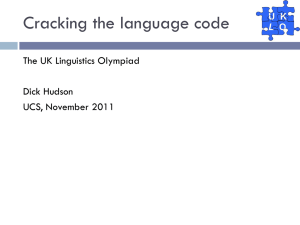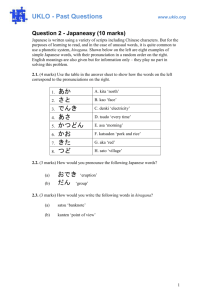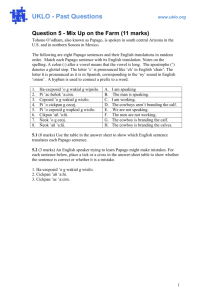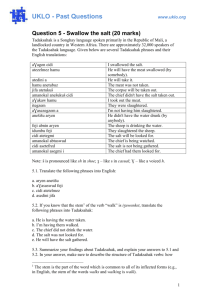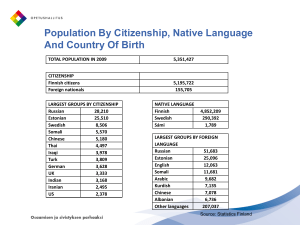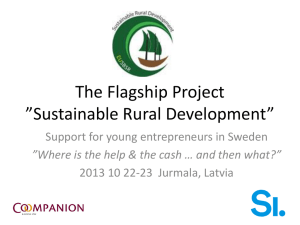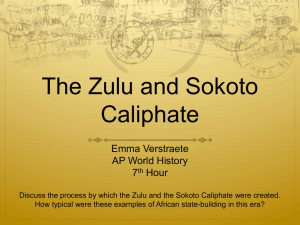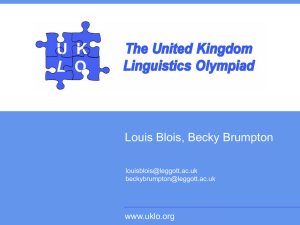Integrating Olympiad materials in ordinary teaching
advertisement
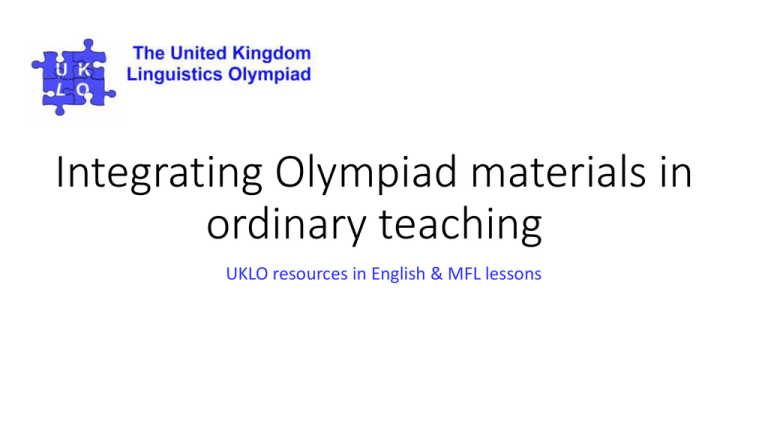
Integrating Olympiad materials in ordinary teaching UKLO resources in English & MFL lessons Why do it? • General educational value - encourage students to develop transferable problem-solving and independent thinking skills; • Subject-specific educational value - particular “problems” / concepts that students tend to find hard in MFL / English Language can approached differently through UKLO problems; • Develop cross-curriculum links – students are encouraged to see connections between language(s), mathematics, and computing for example; • Make learning fun – GCSE and A-level syllabuses especially tend to be very exam focused, while student feedback suggests these “extra bits” are considered as some of the best of the course, and cited as inspiration for degree choices. Examples in the hand-out: The problems 1. Zulu making new words 2. Estonian, Finnish & Swedish words 3. Shavian alphabet – a better way to write English Background • Problems 1 and 2 are “starter” activities; • Problem 3 – a genuine UKLO Round 1 problem is intended as a longer activity. Feel free to have a go at these problems. Any ideas as to how you / your colleagues could use these (and similar) problems? Solutions: Problem 1. Zulu (c) thrashing stick = isibhulo (d) inspector = umthuli (e) thought = umcabango (f) question = umbuzo (g) tailor = umthungi Problem 2. Estonian, Finnish & Swedish 1. Finnish words borrowed from Swedish: “hän” and “torstai”. 2. Swedish is the elite’s language. For Shavian: www.uklo.org see 2013 Intermediate test paper & solution. How we use these problems: Problems 1 & 2 • Starter / introductory activities; • A2 English Language students; • Zulu is used to introduce derivational morphology; • Estonian, Finnish, & Swedish to introduce the concept of borrowing. Shavian Alphabet • Post AS exams in the Lower 6th (Year 12) to introduce phonetics; • Year 10 and 11 G&T students taking part in A-level English Day. Other problems include passive activity (with English examples) to prepare students of AS Japanese; subjunctive starter problems for students of Romance languages. A-level Critical Thinking students would develop problem solving skills with Olympiad problems in their lessons. Currently available: • UKLO Competition & non-competition problems with varying levels of difficulty; • Starter problems (mainly for MFL / English – but can be used in other subjects, too e.g. History, Geography, Mathematics for example). Any kind / type of problem you would like to see? Any other suggestions? Babette Newsome, English Department, Aquinas College, Stockport. bnestaff@aquinas.ac.uk or contact via UKLO.
